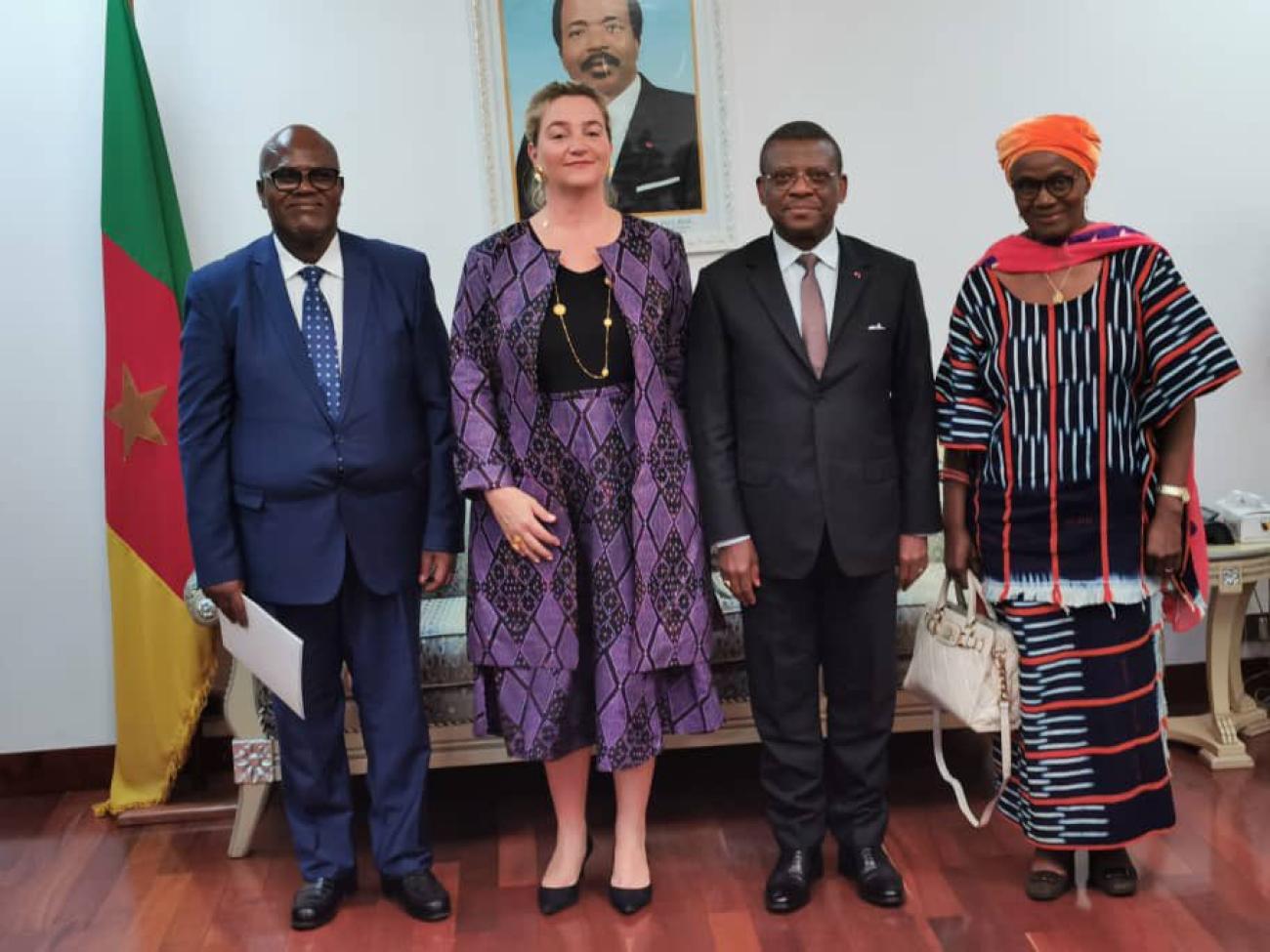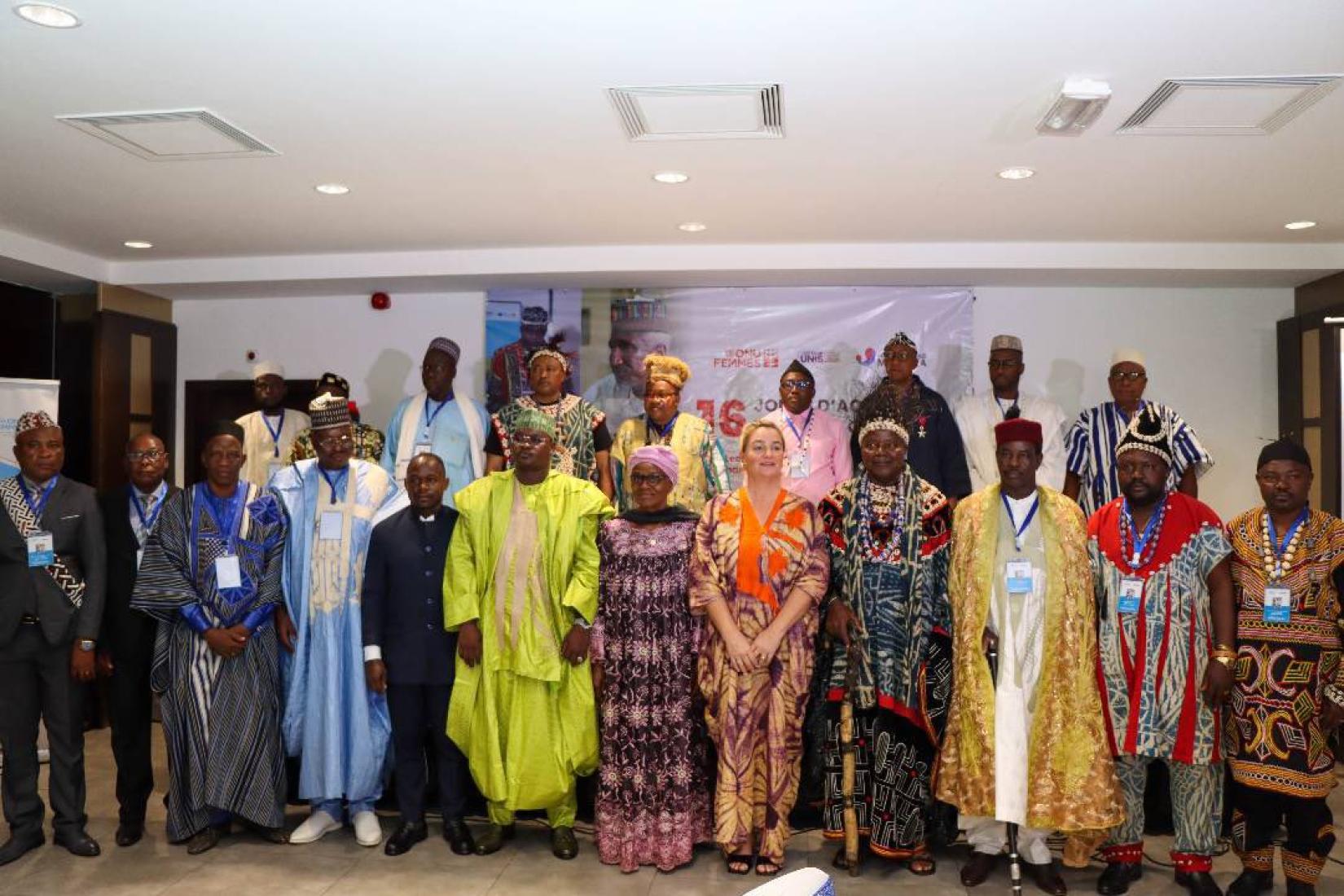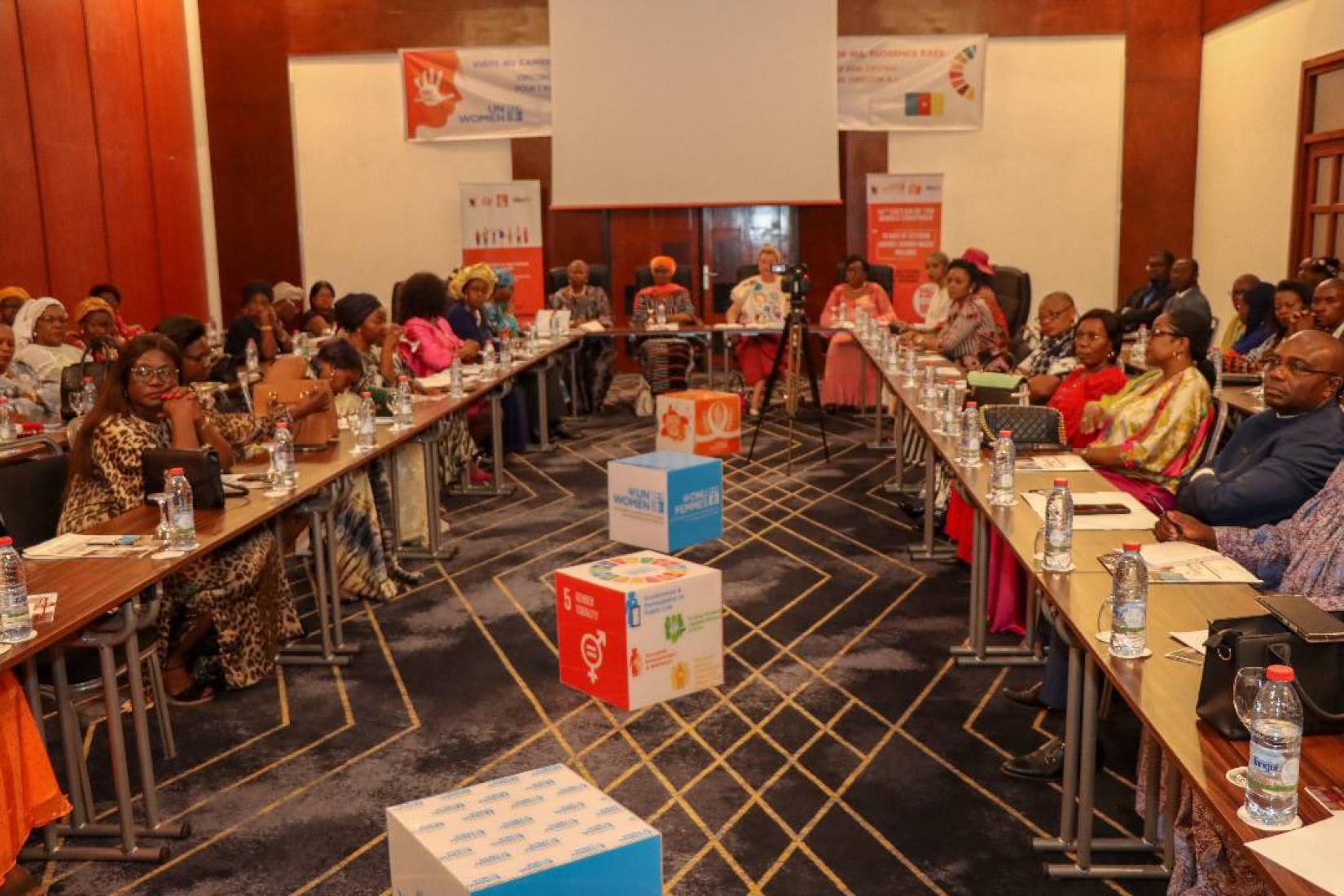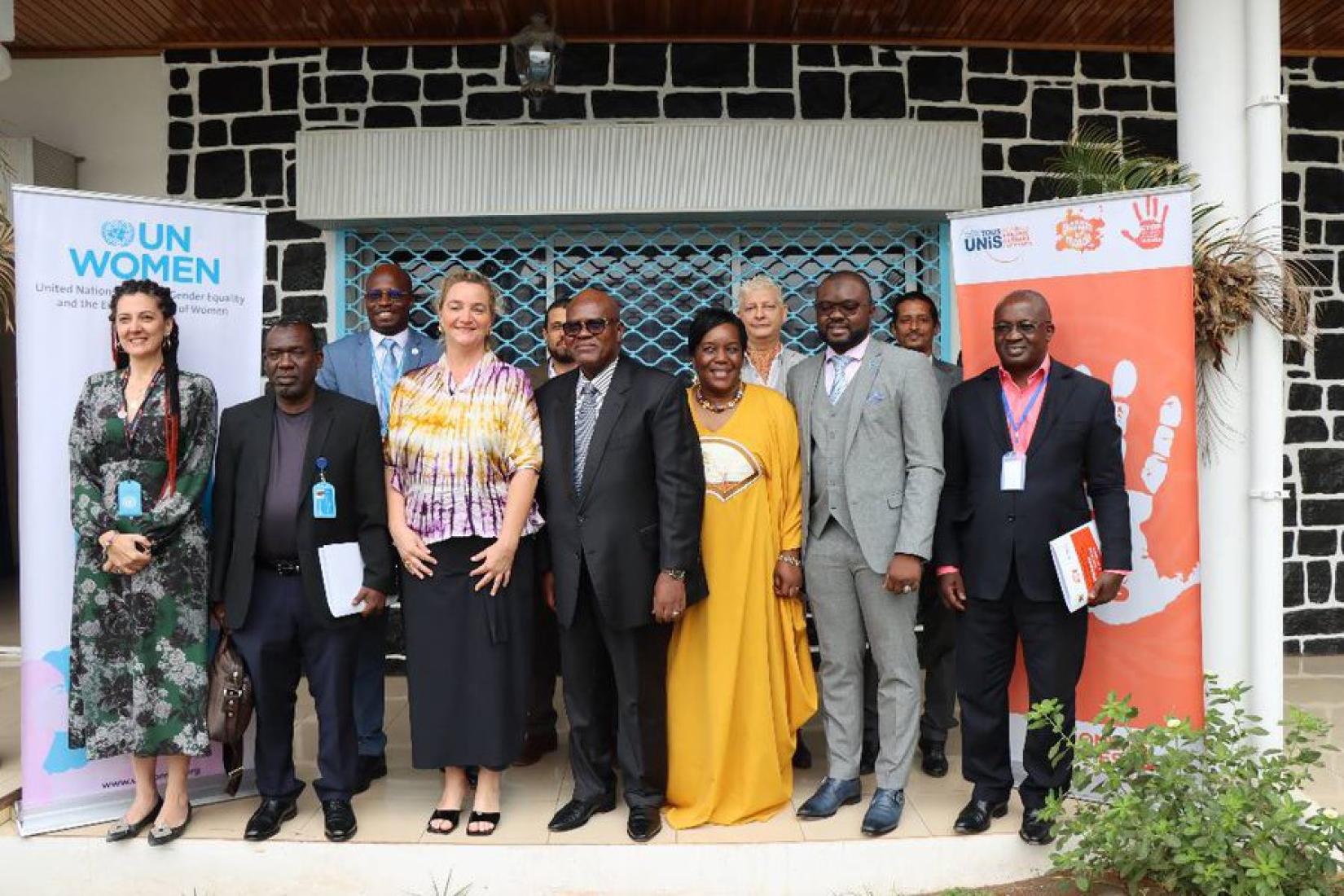Ms. Florence Raes, UN Women Regional Director a.i. for West and Central Africa completes official visit to Cameroon

UN Women WCARO, commended the efforts of the Government of Cameroon in promoting gender equality and women's empowerment
At the end of a week-long visit to Cameroon, Ms. Florence Raes, Regional Director a.i. of UN Women WCARO, commended the efforts of the Government of Cameroon in promoting gender equality and women's empowerment and noted the commitment at the highest level to gender equality, women's empowerment and the promotion of their rights. She reiterated UN Women's commitment and the need for synergy of actions for the economic, political and social empowerment of women to ensure equitable opportunities for girls and boys, women and men.
During her visit, Ms. Florence Raes, Regional Director a.i. of UN Women WCARO, met with:
- H.E. Mr. Joseph Dion NGUTE, Prime Minister of the Republic of Cameroon
- H.E. Mr. Georges Elanga OBAM, Minister of Decentralization and Local Development
- H.E. Mrs. Marie-Thérèse Abena ONDOA, Minister for the Promotion of Women and the Family
- H.E. Mr Felix MBAYU, Minister Delegate to the Minister of External Relations, in charge of Cooperation with the Commonwealth.
She also paid a courtesy visit to:
- H.E. Mrs. Pauline Irène NGUENE, Minister of Social Affairs
- H.E.Fai Yengo Francis, National Coordinator NDDRC
- Mr. Justin KOFFI, Resident Coordinator a.i. of the United Nations
- Mr. Erik ESSOUSSE, Director General of Elections Cameroon
- Mr. Samuel Dieudonné Ivaha DIBOUA, Governor of the Litoral Region
With the Prime Minister, Ms. Florence Raes discussed the possibility of strengthening Cameroon's efforts and sharing its good practices with other countries in the region; they also addressed the issue of women's economic empowerment, their access to land, financing, and credit.
With the Minister for the Promotion of Women and the Family of Cameroon, Ms. Florence Raes discussed the cooperation framework to end gender-based violence and promote women's empowerment at all levels.
Mrs. Marie-Thérèse Abena Ondoa, Minister for the Promotion of Women and the Family said: “The perspective of this meeting was to strengthen the partnership in the implementation of the Cooperation Framework in terms of better coordination, synergy and joint advocacy for women's empowerment and well-being”.

At the decentralization level, there are plans to expand existing collaboration on gender-responsive decentralization and budgeting to consider the voices of women in communities through gender planning.
While sharing with women leaders (parliamentarians, mayors, businesswomen, leaders of civil society organizations, political party representatives, and journalists) and influential women from the Circle of Friends of Cameroon about their challenges and achievements, Ms. Florence Raes, Regional Director a. i of UN Women West and Central Africa announced, "We agreed on the importance of working more on economic empowerment strategies for women and girls in communities affected by violent extremism and conflict, we will work with you to improve living conditions, facilitate access to land, financial and other services, combat the recruitment of the most vulnerable into extremist networks and improve the quality of life of women and girls across Cameroon."

The consultation with civil society focused on the approval of the revised Family Code with the demands of civil society: the political participation of women, the management and prevention of GBV.
The current socio-political crisis in the two English-speaking regions has increased the number of displaced people in neighboring regions, such as the coastal and western regions, who therefore have difficulty returning to school, with women and children being the most affected.
In this context, Ms. Florence Raes also met with displaced women and visited the Center for the Promotion of Women and the Family in the coastal region of Douala to attend the graduation ceremony of young girls who are beneficiaries of the "Second Chance" program, which aims to provide vocational training to nearly 12,000 women and girls who have dropped out of school since 2019 and who are generally undergoing a variety of short- and long-term trainings in ICTs, sewing, agriculture, animal husbandry, and petty trade.
The visit ended with exchanges with representatives of development partners based in Cameroon such as the EU, Japan, India, Egypt, Gabon, Nigeria, Belgium, and the USA.

Through this official visit, the Regional Director a.i. renewed UN Women's commitment to the Government of Cameroon, its partners and civil society to support efforts to ensure that boys and girls, women and men have equal access to resources, services, decision making, education and economic opportunities.







